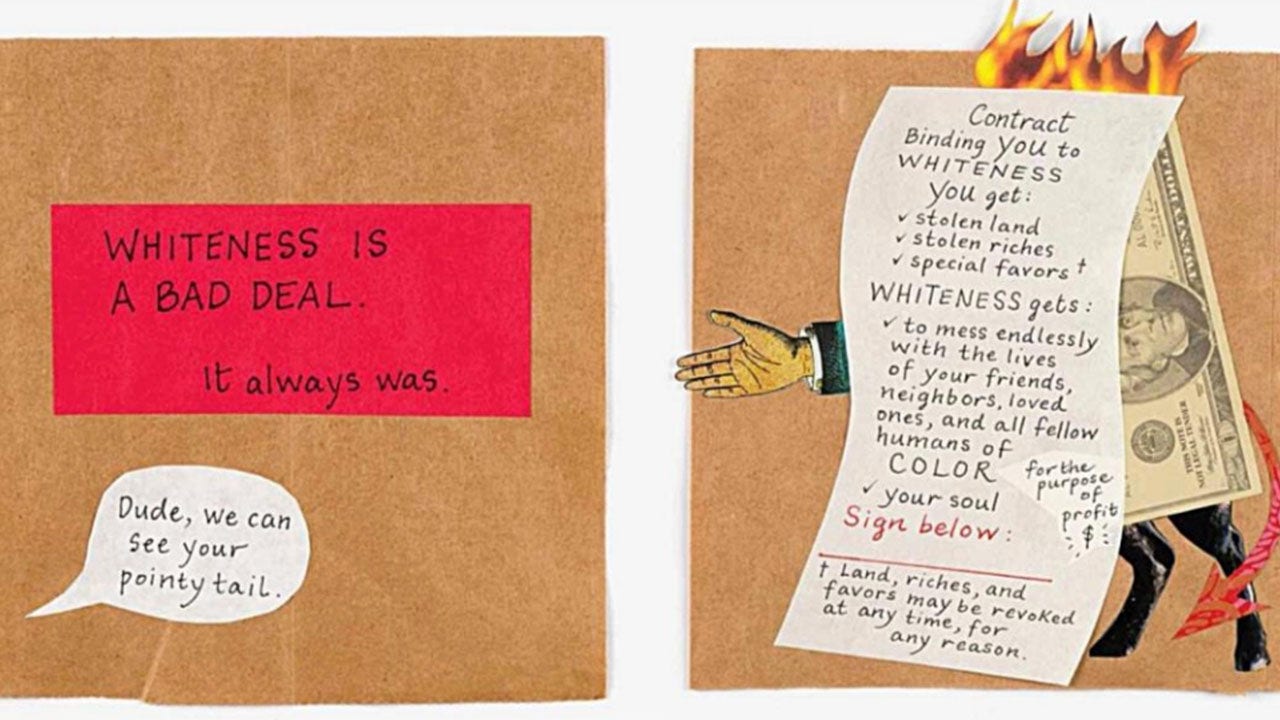Why do you insist on equating skepticism and criticism as extreme and violent? Is that how your psyche interprets disagreement, as violence? Or are accusing someone here of physically assaulting you for expressing your point of view?
Of course not.
It is likely that I have a different *news feed* and different sources I access to inform me. What I say, as a result of what I observe going on around me, is that intolerance, banning, shadow-banning, restricting, blocking, shaming, doxxing, and other such activities are part-and-parcel of government policy and private policy that is being enacted today. I refer to it as violence because, at bottom, it is violence.
I see the present *régime* (as I am inclined to call it) as having various lines of connection with totalitarian/authoritarian régimes and their policies. The American Progressive/Left, operating in this spirit, have begun to apply definitions to groups and ideas they hate with intolerant terms. Republicans are represented as *evil* and callous and cruel. Those who have issues with transgenderism or homosexuality get similar labels. If you are not on the side that they determine to be righteous, you are represented as being aligned with *evil*.
The present régime exploits this rhetoric as it advances sets of agenda and policy to entrench itself.
I am willing to soften the term *violent* to a degree if it is understood that the Progressive-Socialist and Communistic régimes have all shown tendencies that are ultimately destructive. But the idea is coherent.
When I write about such things,
bobito, I am certainly not referring to those participating in this conversation. This conversation
illuminates and explains things going on around us, and those things are consequential. But it is only a reflection of larger forces.
but if you can ma'am can you start with who exactly are these elites who've forced you into thinking a certain way, and exactly how have they managed that?
For you to answer your own question I would suggest you begin with a glossary study of Gramsci and his notion of *cultural hegemony*. If I am not mistaken this led eventually to the idea of *the long march through the institutions* (the following from Wiki):
The long march through the institutions (German: der lange Marsch durch die Institutionen) is a slogan coined by Communist student activist Rudi Dutschke around 1967 to describe his strategy for establishing the conditions for revolution: subverting society by infiltrating institutions such as the professions. The phrase "long march" is a reference to the prolonged struggle of the Chinese communists, which included a physical Long March of their army across China.
Herbert Marcuse corresponded with Dutschke in 1971 to agree with this strategy, "Let me tell you this: that I regard your notion of the 'long march through the institutions' as the only effective way... In his 1972 book, Counterrevolution and Revolt, Marcuse wrote:
To extend the base of the student movement, Rudi Dutschke has proposed the strategy of the long march through the institutions: working against the established institutions while working within them, but not simply by 'boring from within', rather by 'doing the job', learning (how to program and read computers, how to teach at all levels of education, how to use the mass media, how to organize production, how to recognize and eschew planned obsolescence, how to design, et cetera), and at the same time preserving one's own consciousness in working with others.
The long march includes the concerted effort to build up counterinstitutions. They have long been an aim of the movement, but the lack of funds was greatly responsible for their weakness and their inferior quality. They must be made competitive. This is especially important for the development of radical, "free" media. The fact that the radical Left has no equal access to the great chains of information and indoctrination is largely responsible for its isolation.




